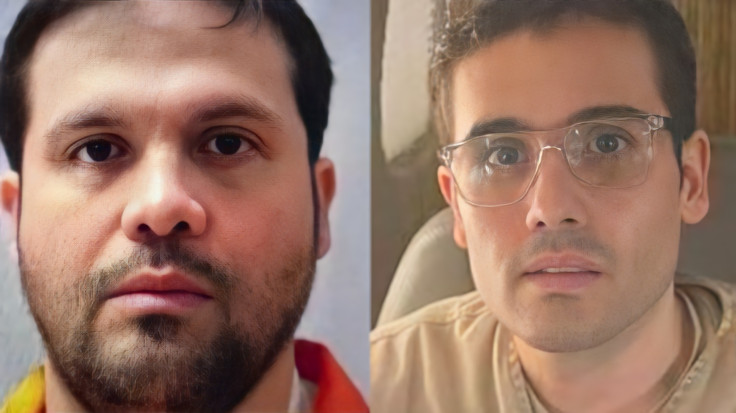
Two of Joaquín "El Chapo" Guzmán's sons are nearing a legal resolution in the United States, signaling what could be a historic shift in the trajectory of the Sinaloa Cartel, and this may signal a new approach for Washington in the fight against organized crime.
Ovidio Guzmán López, known as "El Ratón," and Joaquín Guzmán López, nicknamed "El Güero," are each scheduled to appear before a federal court in Chicago next month. According to Jesús Esquivel, a renowned Mexican journalist and expert on organized crime, both are expected to plead guilty as part of cooperation deals with the U.S. government.
According to official court schedules, Ovidio will appear before Judge Sharon Johnson Coleman of the U.S. District Court for the Northern District of Illinois on July 9. His brother Joaquín is set for a similar hearing on July 15. These proceedings are the latest chapter in the U.S. government's efforts to dismantle the leadership of the Sinaloa Cartel following El Chapo's life sentence in 2019.
High-Stakes Negotiations Behind Closed Doors
Sources familiar with the proceedings, including journalist Esquivel, who publishes his work in the political magazine Proceso, report that sealed documents and a classified ruling were filed in Judge Coleman's court this week—likely indicating that both brothers have already reached plea agreements with federal prosecutors. Speaking to Aristegui Noticias, Esquivel expressed confidence that a cooperation deal is imminent. Once the agreement becomes official, we won't see them again publicly as drug trafficking defendants."
Legal experts suggest the brothers may be cooperating under Section 5K1.1 of the U.S. Federal Sentencing Guidelines, which allows for significant sentence reductions if a defendant provides "substantial assistance" to the government. Such cooperation can lead to reduced prison time, entry into a witness protection program, and more lenient prison conditions.
From Notoriety to Disappearance
Ovidio, extradited to the U.S. in September 2023, had been considered one of the most visible faces of the so-called Chapitos, the younger generation of Sinaloa Cartel leaders. His dramatic arrest in 2019 led to the bloody "Culiacanazo," when cartel gunmen forced the Mexican government to release him—an embarrassment for then-President Andrés Manuel López Obrador's security strategy. He was eventually recaptured and extradited amid heavy security.
Joaquín Guzmán López, less known but deeply embedded in the cartel's operations, was arrested in El Paso, Texas, on July 25, 2024. In a stunning twist, he arrived in a private jet from Mexico alongside Ismael "El Mayo" Zambada, the elusive co-founder of the Sinaloa Cartel. According to official U.S. and Mexican sources, Joaquín handed over Zambada to American authorities, claiming the latter had been "kidnapped." This betrayal ignited internal war within the cartel and is believed to have triggered the wave of violence currently plaguing Sinaloa.
Betrayal and Fragmentation Within the Cartel
The arrest and alleged betrayal of El Mayo Zambada marked a seismic rift in the Sinaloa Cartel. Once united under a leadership triangle composed of El Chapo, El Mayo, and Dámaso López Núñez, the cartel has fractured into competing factions. The fallout has led to targeted assassinations, armed confrontations in Culiacán and Mazatlán, and ongoing instability in the state.
Mexico's Fiscalía General de la República (FGR) has launched its own investigation into the apparent defection of the Guzmán brothers. A senior official described it as "an unprecedented betrayal in the history of organized crime in Mexico."
The Murky Ethics of Cooperation
While plea deals are common in major federal drug cases, they come with controversy. U.S. prosecutors often reduce sentences or even grant freedom in exchange for information, regardless of the severity of the accused's crimes.
"This is a system where mass murderers can walk free," Esquivel said. "It's impossible to verify what they claim. And I've personally spoken with witnesses from the El Chapo trial who later admitted they were coached by prosecutors."
Still, federal officials defend the practice, saying it is one of the most effective tools for dismantling transnational criminal organizations. The Department of Justice has not commented publicly on the Guzmán brothers' status.
© 2025 Latin Times. All rights reserved. Do not reproduce without permission.







